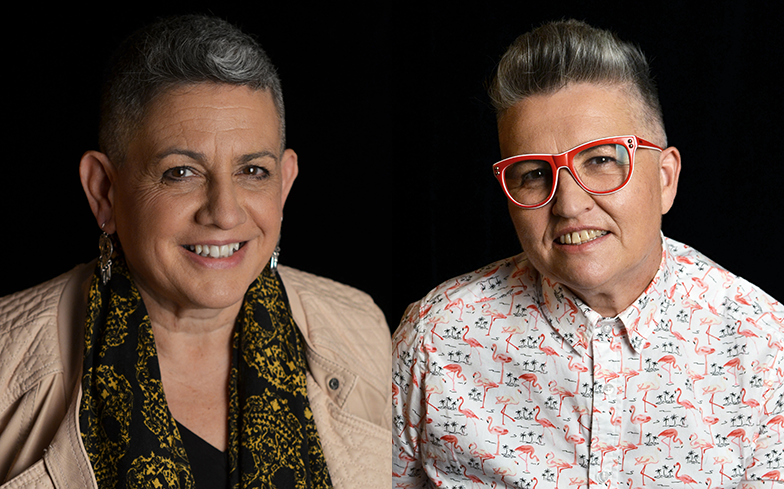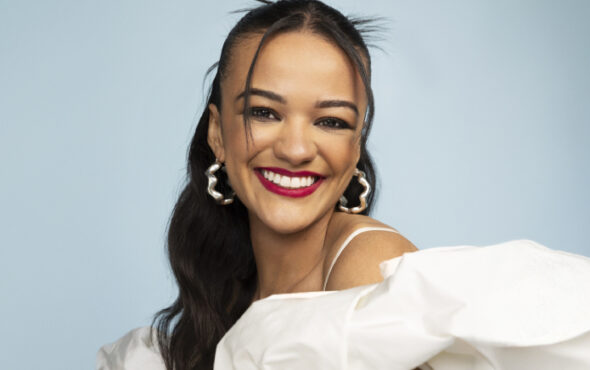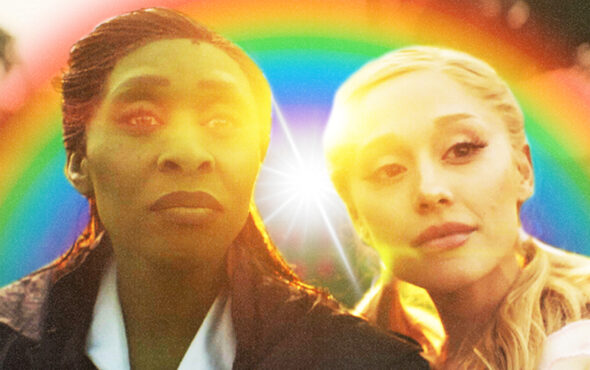
“Our collections are designed by themes that affect us all.”
Earlier this month, award-winning documentary filmmakers Jac Nunns and Angie West launched their LGBTQ-only streaming service for short films, dedicated to entertain and educate viewers on the richness of queer culture.
Queer Bee’s aim is to showcase LGBTQ stories that would otherwise go underrepresented. Yes, we’ve been treated to Oscar nominated dramas over the past decade such as Call Me By Your Name, Moonlight and Carol, but there’s still a significant lack of mainstream movies that represent the entire community.
“QueerBee films and their makers are bringing an authentic view, and we learn a lot ourselves, despite living openly in big city, in a liberal society,” they tell us. “Our collections are designed by themes that affect us all.”
We spoke with Jac and Angie about the importance of LGBTQ-only streaming services, why it was important for them to make Queer Bee available in countries where homosexuality is still illegal, and how films can better educate viewers than schools.
Why is it important to have a streaming service dedicated solely to LGBTQ content?
Viewers can find a wide range of LGBTIQ-centric films that they want to watch, in one place. This gives viewers the opportunity to learn about other people’s experience of being LGBTQI, perhaps in another part of the world, perhaps in a different time. QueerBee is different because we only show short films at festival-quality. It’s a special interest site and that special interest is LGBTIQ life.
You’ve made the service available in countries where homosexuality is illegal – do you hope that this will be the representation they need?
People living in places where homosexuality is illegal will not be getting rounded information or emotional nourishment from their media or their geographic community and this might help to see that there is a world out there, way beyond what they know, where it is legal to love who you want to love. By showing other experiences from different countries, cultures and backgrounds is a great way to educate people that are not so familiar.
You created the streaming service to educate queer audiences – do you think a lot of LGBTQ people still don’t know their history?
Whose history do we know and told by whom? QueerBee films and their makers are bringing an authentic view, and we learn a lot ourselves, despite living openly in big city, in a liberal society. Our collections are designed by themes that affect us all, as well as films available individually. Anyone accessing our content will learn something valuable and we are particularly keen to connect with people who are struggling to make sense of their world and are looking for stories that resonate. It’s not necessary to learn about our history but remembering it, honouring it and seeing it from different viewpoints from many different people.
Why don’t you think queer people have educated themselves?
People can only access what is available. We had seen hundreds of excellent, thought-provoking films at festivals only to be unable to find them again once the festival run ended. There are some great places online, of course, but our own experiences of Googling for LGBTIQ content were fraught in so many ways that it would be a long list. We have fiction, documentary, animation and so much more, all with queer audiences in mind.
Do you think films can educate people about LGBTQ issues better than schools can?
The way LGBTIQ history is revealed in schools is wonderful when it is done well and when the school culture is truly inclusive. If either or those things are absent, then the education is impaired. The internet has made it possible for people to find information independently of schools, and their families, or their religious communities, and our aim is to have loads of suitable stories for young people as well as those who have lived a little.
You don’t only have coming out stories and documentaries, but also horror, comedy and other genres – why was this important for you to do?
How better to show that we are everywhere, experiencing everything? We are a broad and dynamic global community with different likes and dislikes but our orientations even affect how we might react to zombies next door (Boy Nextdoor) or if our mum is a little too enthusiastic about something they found in the laundry (Mom’s The Word), or how our story is told after we die (My Aunt Mame and Life’s A Drag). We like to support good work where we can and as we do have super films to share, where there is a natural fit.
Why did you choose to include important key dates such as Mental Health Awareness Day and International Women’s Day on the service?
It’s an obvious thing to do because what unites us is the discrimination, the micro and macro aggressions that we all experience, the extra sense that we have to employ while going about our business. Including important key dates is a way for audiences to understand the way the LGBTIQ community struggles but also ways of how to be celebrated. It all resonates back to understanding. Yes, well-rounded LGBTIQ characters in the mainstream are rare and everyone is very welcome! We’d like to live in Russel T Davies’ future (Years & Years) where nobody bats an eyelid if you have a same-sex lover. Today though, we’re not there and rather than waiting for it to happen, filmmakers carry on making their films knowing their films will never enter the mainstream. Find these films, we think, the answer is QueerBee. It’s a simple, user-friendly website where anyone with an interest in LGBTIQ material can find plenty. Also, the profits go back to filmmakers, not to a faceless corporation. It’s a no-brainer really.
You can subscribe to Queer Bee for £40 per year or £3.99 monthly. View their website here.



